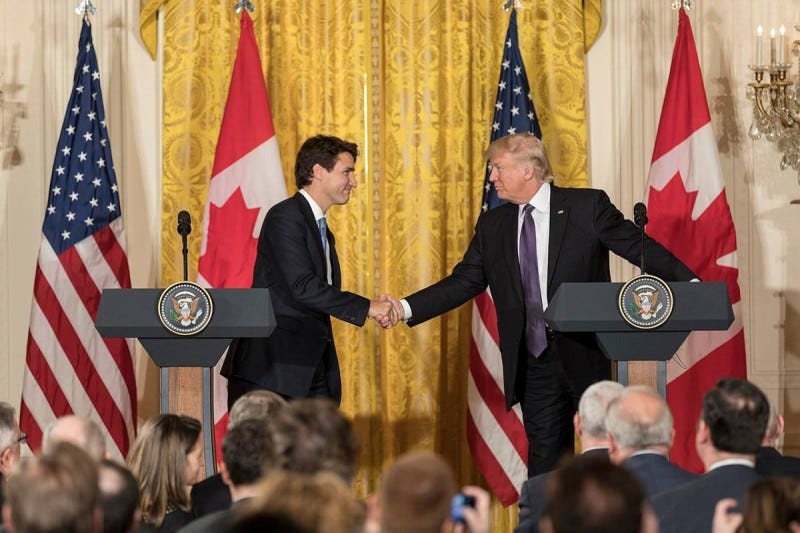All bets are off
In a matter of weeks, Donald Trump has inadvertently transformed Canada's entire political dynamic.

For the better part of two years, the basic contours of Canada’s next federal election have seemed obvious and inevitable. Thanks in large part to an ongoing cost of living crisis they have seized upon quite effectively, Pierre Poilievre and the Conservatives have enjoyed a massive lead in the polls. The other significant factor has been the deep and abiding unpopularity of prime minister Justin Trudeau, whose intransigence has been a significant drag on Liberal fortunes — so much so that leaders of provincial Liberal sections like Bonnie Crombie have been doing their utmost to establish as much distance from Trudeau as possible.
In the span of a few weeks, however, the underlying dynamics here have completely changed. Early in the new year, Trudeau was successfully forced out. More significantly, Trump’s tariff threats and annexationist rhetoric have become the central issue in Canadian politics at virtually every level. The cost of living crisis continues unabated, but existential questions — of economics, of geopolitics, of culture and identity — now loom as well. Whatever else, the political winds have shifted noticeably in a very short span of time.
My purpose here is not to try and predict or even speculate about the outcome of the next federal election — nor even to comment on the speculations of various pollsters that the Tory lead is quietly collapsing. But I think it’s increasingly obvious it won’t conform to the template most, myself included, have been expecting. For their part, the Tories themselves appear to be reaching the same conclusion. Since Poilievre was elected leader, they’ve envisioned a campaign built around public animus toward Justin Trudeau and the high cost of living, pairing a narratively compelling (though substantively vague) story of national renewal with classic right wing messaging about taxes and overspending. For several reasons, that may no longer be an option. As one Conservative source recently told the CBC: “The start of a tariff war with the United States is changing voters' moods. It's harder to talk about a broken Canada when there's a growing sense of patriotism.”
Trump, for what it’s worth, was always going to be a big problem for the Tories. He’s deeply unpopular throughout Canada, but also revered by parts of the Conservative base especially in the West (look no further than Alberta premier Danielle Smith’s deferential posture). But in the Trudeau/cost of living election that was originally anticipated, these things could have been triangulated much more easily. Now, the Conservatives will have to sell themselves to an electorate mostly united in its opposition to Trump — and likely more receptive to the charge they’re politically and ideologically associated with him as a result.
How the Trump factor shapes the outcome of one election or another, it seems to me, may ultimately be less significant than how the events of the past several weeks reshape Canada’s political dynamics in the longterm. It’s only February, and 2025 has already disrupted the political and economic consensus in ways that even a few months ago would have seemed basically unimaginable. Whether or not Trump actually proceeds with his stated tariff policy, the existential issue of Canada’s orientation towards the United States — in many ways a settled matter since the late 1980s — is back on the table again.
Historically, the Canada-US relationship has been one of the structuring axes of Canadian politics: touching everything from the realm of foreign policy (should Canada join America in likes of Vietnam or Iraq?) to political economy (should it remain export focused or pursue more activist industrial policies? should it seek to assert Canadian control over industry and resources, or should it accept high levels of American ownership?) to national identity (should high levels of investment in Canadian arts be maintained or expanded? should there be a protectionist approach when it comes to media, culture, and broadcasting? to what extent does Canada, as a culture and as a political community, define itself in contrast to the United States?).
The ferment, I suspect, is really just beginning.




Loved this, and all the new pieces here.
- longtime 'Michael & US' fanatic
Great points, but using "the West" as shorthand for Alberta will always annoy BC.